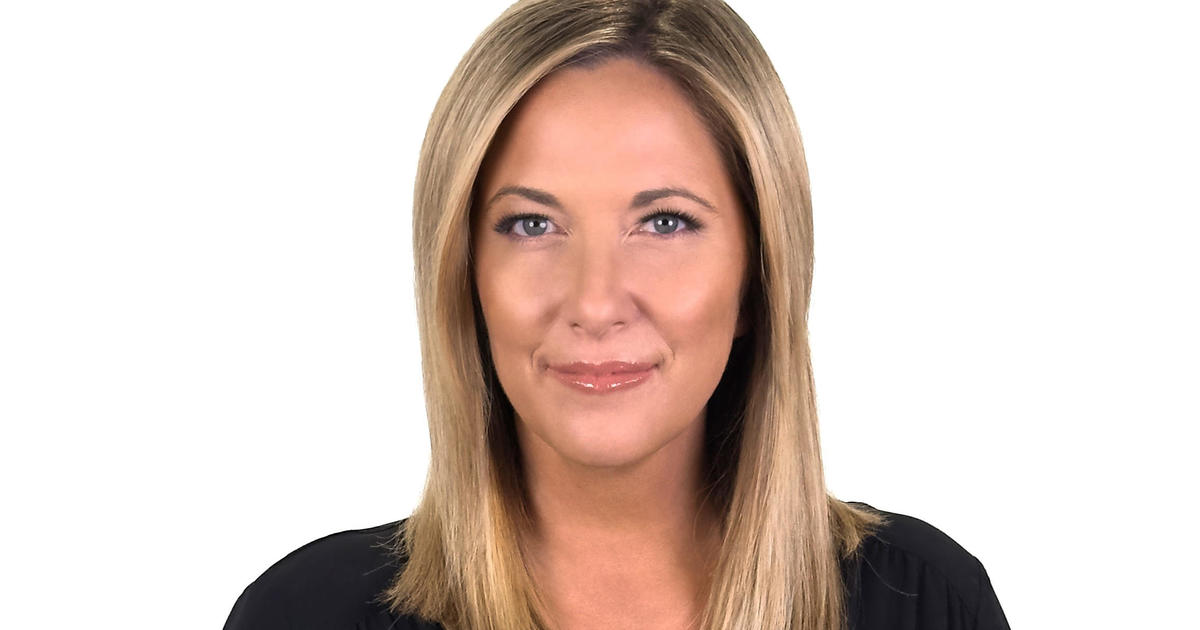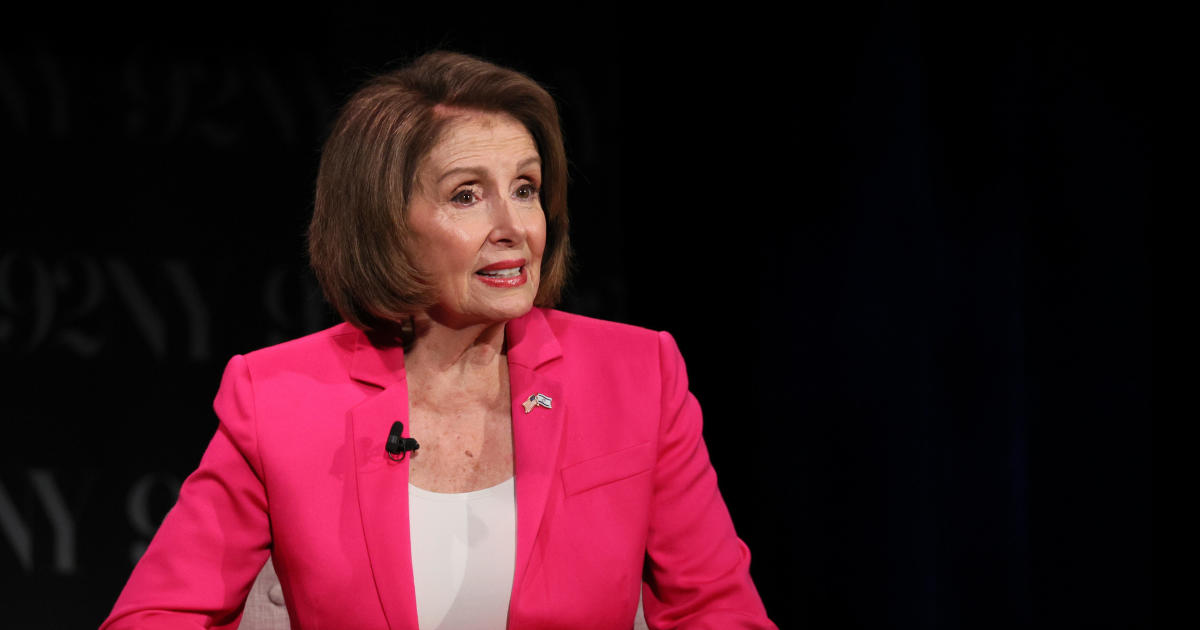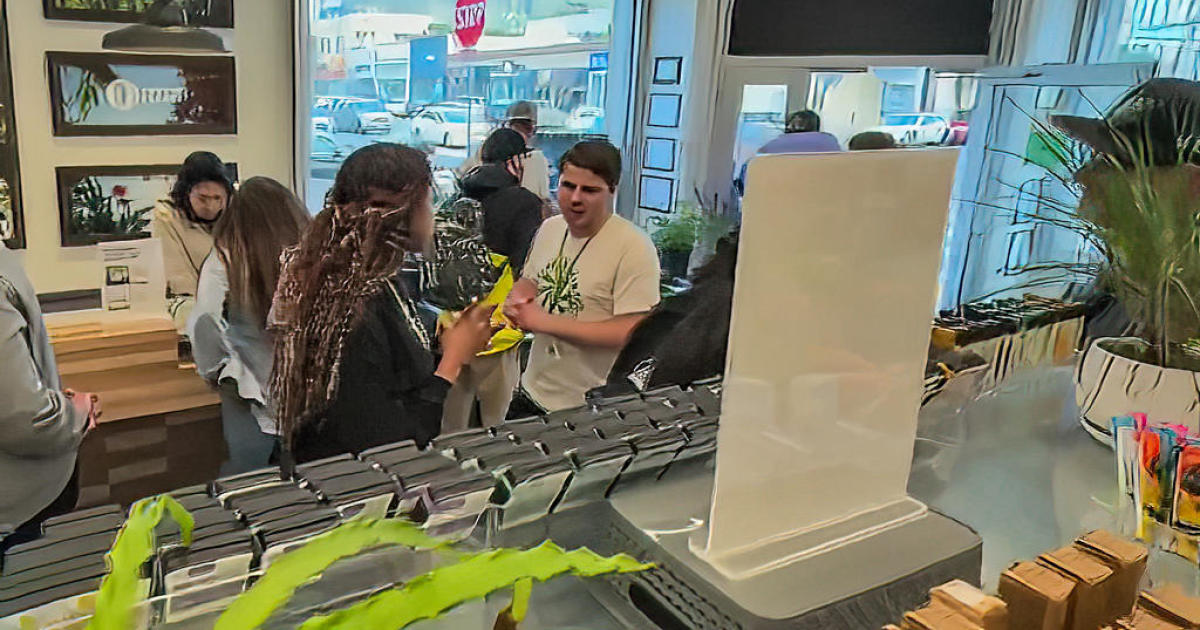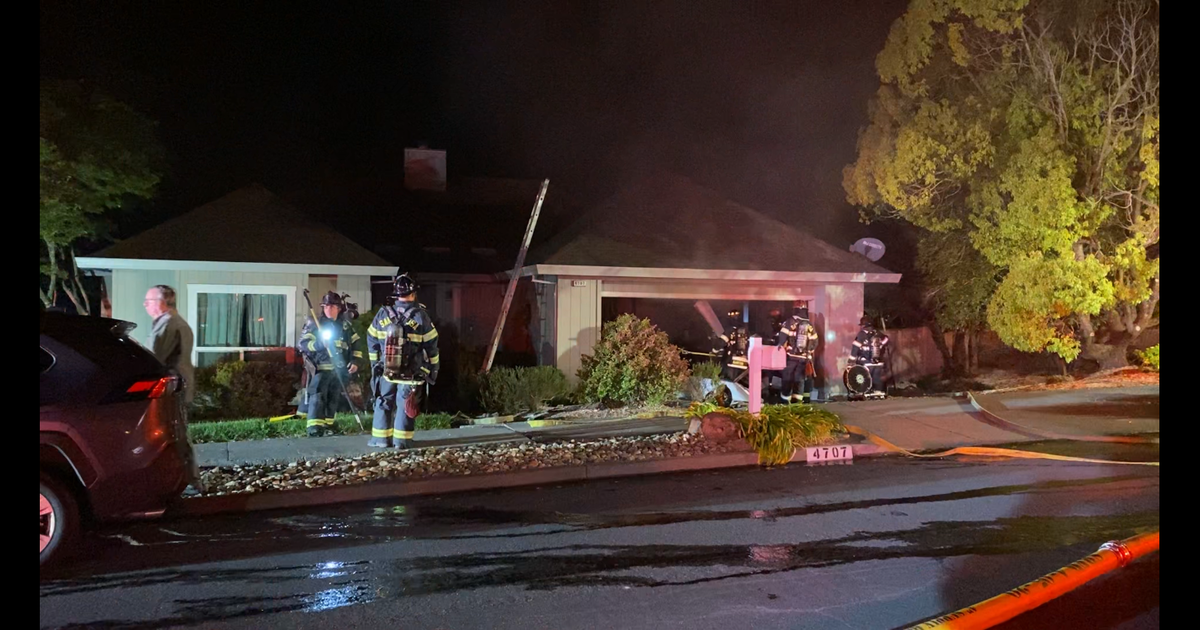'I Don't Think Science Knows;' Trump Disputes Climate Change Science During California Wildfires Briefing
SAN FRANCISCO (CBS SF/AP) -- President Donald Trump arrived in Sacramento Monday to get a first-hand report on the devastation left behind by the state's historic outbreak of wildfires and quickly stepped into the fray of the ongoing climate-change debate.
Upon landing at McClellan Park, a former airbase just outside Sacramento, President Trump late Monday morning briefly spoke with gathered reporters. He once again emphasized his often-repeated call for better forest management, noting that European countries don't experience the same type of catastrophic wildfires. The President also offered his condolences to those who lost family members to wildfires.
ALSO READ: VIDEO: Trump Protester Seen Climbing On CHP Vehicle, Falling To Ground As It Takes Off
When one reporter asked President Trump why he hadn't addressed the fires earlier, he dismissed it as "a nasty question" and insisted he and his administration were quick to provide federal aid to the state.
During the briefing on the wildfires, the President stepped straight into the raging debate over climate change and his administration's politics toward global warming.
CONTINUING COVERAGE: Latest Reports on the California Wildfires
Early on in the briefing, California Governor Gavin Newsom stated "the evidence is in" regarding the reality of climate change and asked that the President respect "the difference of opinion as it relates to this fundamental issue."
While the president replied, "Absolutely," it didn't take him long to refute what scientists have been saying about climate change.
Newsom also allowed that the state could do a better job of forest management.
During one part of an official's presentation on the wildfires, President Trump interjected, "It will start getting cooler, you just watch."
When California Natural Resources Secretary Wade Crowfoot countered, "I wish science agreed with you," the President without hesitation said, "Well, I don't think science knows."
Later during the visit, the President and Gov. Newsom honored California National Guard crews for their heroic rescue under dangerous conditions of campers stranded by the Creek Fire last week.
The governors have been blunt: Washington Gov. Jay Inslee on Sunday called climate change "a blowtorch over our states in the West."
"It is maddening right now that when we have this cosmic challenge to our communities, with the entire West Coast of the United States on fire, to have a president to deny that these are not just wildfires, these are climate fires," Washington Gov. Jay Inslee said Sunday on ABC's "This Week."
As Newsom toured a ghost-like landscape destroyed by flames Friday, he called out the "ideological BS" of those who deny the danger.
"The debate is over around climate change. Just come to the state of California, observe it with your own eyes," he said.
He noted that just in the last month, California had its hottest August, with world-record-setting heat in Death Valley. It had 14,000 dry lightning strikes that set off hundreds of fires, some that combined into creating five of the 10 largest fires in the state's recorded history. And it had back-to-back heat waves.
Oregon Gov. Kate Brown said about 500,000 acres typically burn each year, but just in the past week, flames have swallowed over a million acres, pointing to long-term drought and recent wild weather swings in the state.
"This is truly the bellwether for climate change on the West Coast," she said Sunday on CBS's "Face the Nation." "And this is a wake-up call for all of us that we have got to do everything in our power to tackle climate change."
At a rally in Nevada, Trump blamed the way states have run the land, saying "it is about forest management." White House adviser Peter Navarro echoed that Sunday on CNN's "State of the Union," saying that for many years in California, "particularly because of budget cutbacks, there was no inclination to manage our forests."
Forest management, which includes tree thinning and brush clearing, is costly, labor-intensive work that is effective in reducing fuel for wildfires. Millions of dollars are spent on such reduction efforts every year in Western states though many argue more needs to be done. The efforts can also be undercut when homeowners in rural areas don't undertake similar efforts on their own properties.
Los Angeles Mayor Eric Garcetti accused Trump of perpetuating a lie that only forest management can curtail the massive fires seen in recent years. He pointed to drought and the need to reduce carbon emissions.
"Talk to a firefighter, if you think that climate change isn't real," the Democratic mayor said on CNN's "State of the Union."
It isn't clear if global warming caused the dry, windy conditions that have fed the fires in the Pacific Northwest, but a warmer world can increase the likelihood of extreme events and contribute to their severity, said Greg Jones, a professor and research climatologist at Linfield University in McMinnville, Oregon.
Warnings of low moisture and strong winds could fan the flames in hard-hit southern Oregon to Northern California and last through Tuesday. Tens of thousands of people have fled their homes as the fast-moving flames turned neighborhoods to nothing but charred rubble and burned-out cars.
At least 10 people have been killed in Oregon. Officials have said more people are missing, and the number of fatalities is likely to rise, though they have not said how high the toll could go as they search. In California, 24 people have died, and one person was killed in Washington state.
Firefighter Steve McAdoo, who has run from one blaze to another in Oregon for six days, said his neighbors in rural areas outside Portland should clear trees near their homes because a week like they just survived could happen again.
"I would think the way the climate is changing, this may not be the last time," he said.
In the small southern Oregon town of Talent, Dave Monroe came back to his burned home, partly hoping he'd find his three cats.
"We thought we'd get out of this summer with no fires," he said. "There is something going on, that's for sure, man. Every summer we're burning up."
© Copyright 2020 CBS Broadcasting Inc. All Rights Reserved. The Associated Press contributed to this report.



